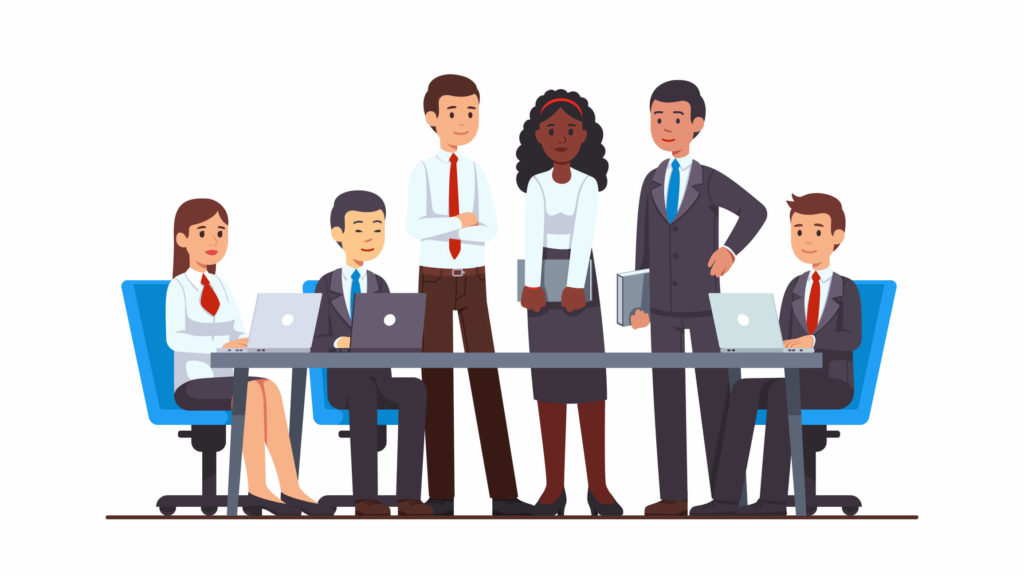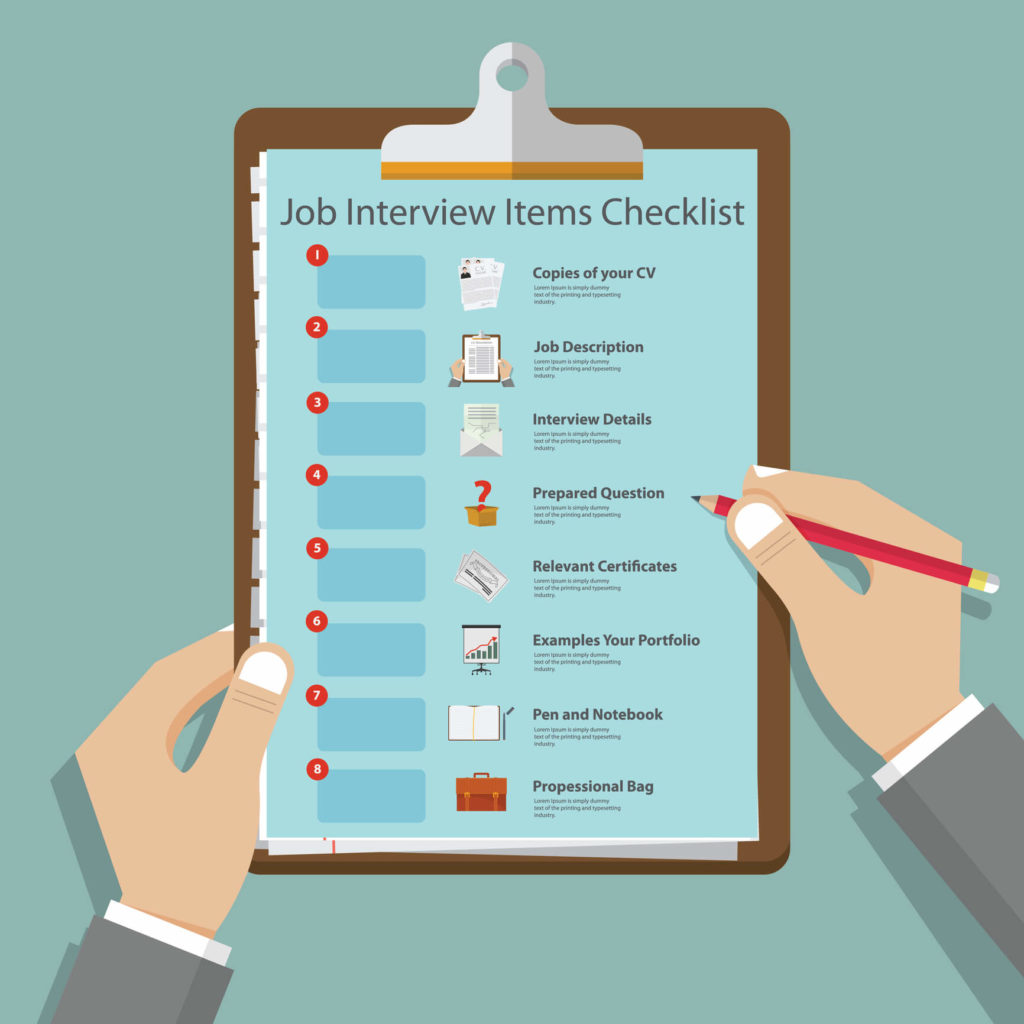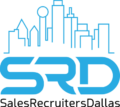Your dream sales job that you’ve been extremely excited to work for has finally extended an invitation for you to join a group interview. If you’ve never gone to a group interview before, it’s a lot different than a regular one-on-one interview. This type of interview style has become very popular within the last decade due to the fact that it tells employers a lot about a potential employee.
The best way to prepare yourself for a group interview is to understand how group interviews work, the type of questions you’ll be asked, and how to stand out from others in that interview. Continue reading our guide to learn everything you need to know before your next group interview.

What Is A Group Interview and How Does It Work?
A group interview involves bringing in multiple candidates who are applying for the same position and interviewing them simultaneously. The idea behind a group interview is to get a sense of how you respond to questions thrown your way and your attitude towards other candidates.
During the actual interview, the interviewer will ask various questions to the entire group. This may include specific job situations or problems you might face and allow the entire group to answer those questions. The interviewer may let everyone have a chance to answer or look for volunteers to respond. You might also participate in activities where you split up into groups to figure out a solution together. The exact layout of the interview may look different depending on the specific company you’re interviewing for.
Group interviews are great for companies that are looking for an employee with specific skills. This might include skills like good teamwork, problem-solving abilities, optimistic attitude, and interpersonal communication skills. Plus, it gives insight into how an employee will respond to stressful or new situations, common in many jobs.
Why Do Companies Conduct Group Interviews?
When a role deals with customer interaction, dealing with the public, or working in heavy team environments, group interviews can be beneficial for employers to assess how an employee will act on the job. The tasks given during the interview will test their problem-solving skills, how they work under pressure and how they respond to new situations. The top reasons why companies conduct group interviews include:
• Inexpensive: The average cost of a new hire is more than $4,000, so companies will try to find ways to cut back on these heavy expenses. To avoid spending money to interview each candidate individually, companies conduct multiple interviews at once. This gives more time back to the hiring manager to focus on other work responsibilities.
• Evaluate Work Skills: More than 85% of employers have found lies on job applicant’s resumes. While an employee might seem very promising during a one-on-one interview, they could react to the job in a completely different way. Group interviews allow potential employees to put their skills on display. Employers present various activities to see how you can work with others around you to accomplish the task at hand.
• Easy Comparison: Conducting a group interview makes it easy for an employer to assess the differences between employees instead of trying to remember multiple one-on-one interviews.
• Tests Employee Culture Fit: It’s hard to tell how an employee could fit into a company’s culture during a one-on-one interview. They might lie or say anything to fit what they think employers want to hear. Group interviews make it easier to see how potential employees will actually act on the job. This will help employers determine if they fit with the company’s vibe.
How to Prepare for A Group Interview
If you score an invite to a group interview, it’s essential to understand that it will run differently than a one-on-one interview. To make sure you’re ready to ace that interview, it’s necessary to learn how to stand out from your competition and make a lasting impression. Follow our tips below to ensure you’re ready to take on the challenge.
• Arrive Early: Give yourself plenty of time on the day of your interview to ensure you can get there at least 15 minutes early. Arriving early helps you to become comfortable with the environment, potentially meet your interviewers or other candidates involved in the process and calm any nerves you may have going into the interview.
• Prepare Your Elevator Speech: If you met someone on an elevator, and you had 30 seconds to impress them, what would you say about yourself to stand out? This answer should be a combination of why you’re qualified, your background, and work experience bundled into one fluid statement.
• Introduce Yourself: Take the time to meet the other candidates and interviewers in the room. Strike up a conversation and try to get to know them if time permits. Try to remember names so that you can address them individually during the interview questions and activities. These types of skills are noticeable to interviewers.
• Research the Position: Just like any job interview, taking the time to understand the company, the staff, and the specific role you’re applying for will help you answer questions confidently and relate them back to the position you’re applying for. Interviewers will notice when you’re able to integrate information about their company into your answers.
• Listen Before Responding: In many group interviews, the interviewer will ask questions and allow everyone in the group to give their answer. It’s essential to take the time to listen to other’s answers . Use them to build off of for your answer and avoid repeating the same statement. Don’t be afraid to agree with someone else’s answer and add extra information to create a more substantial response.

Sample Group Interview Questions
Now that you’re prepared for how you should act during the interview, it’s essential to prepare yourself for the type of questions the interviewer may ask. There are tons of questions available for group interviews. Some questions may be asked to the entire group or only for a specific person. Regardless, practice having your answers prepared to the most common group interview questions listed below.
1. Tell Me More About Yourself
This is usually one of the very first questions you’ll face. Interviewers are trying to get a sense of your background, work experience, and qualifications to see if they match their available role. Include this information while still adding some personality to your answers. This might include a fun fact or favorite hobby, so that they know you a bit better. Keep your answer short, and don’t take more than 30 seconds to introduce yourself.
2. What Will You Bring To Our Company?
In this question, you want to highlight your strengths and abilities that prove you’re the best candidate for the job. Think about what makes you unique and how you can match it to your job description. Are you great with numbers, have a knack for customer service, or find innovative ways to solve problems? Whatever your unique strength is, this question is the place to highlight it.
3. Why Do You Want To Work for Our Company?
This question is testing how much you researched before coming to the interview. Exploring the organization beforehand shows your commitment to the position. When answering this question, highlight what you’ve learned. This might include mentioning their mission, company culture, job duties, or anything else you know about the organization.
4. How Do You Deal with Stress?
Interviewers want to understand your strategy for dealing with stress because, most likely, you’ll experience stress in that new role. Talk through your pro-active approach to stress and how you ensure the situation ends on a positive note. Things like thinking through the problem, taking a step back, or asking a manager for help are common answers to this question.
Ending the Group Interview
Once all questions have been asked, employers will usually leave a portion of time for questions. Have some good questions ready. Don’t ask general questions about the job or company that could be answered with simple research. Instead, ask questions about how you can be successful in the role. You might inquire how much travel is required, and how to advance in this position.
After that, the interview is finished. Make sure to take the time to thank each interviewer personally, which will leave a good final impression. Follow up by sending an e-mail or thank you letter to your interviewers. Try to make it personal or include something specific you learned in the interview. This will help yourself stand out from the competition.

